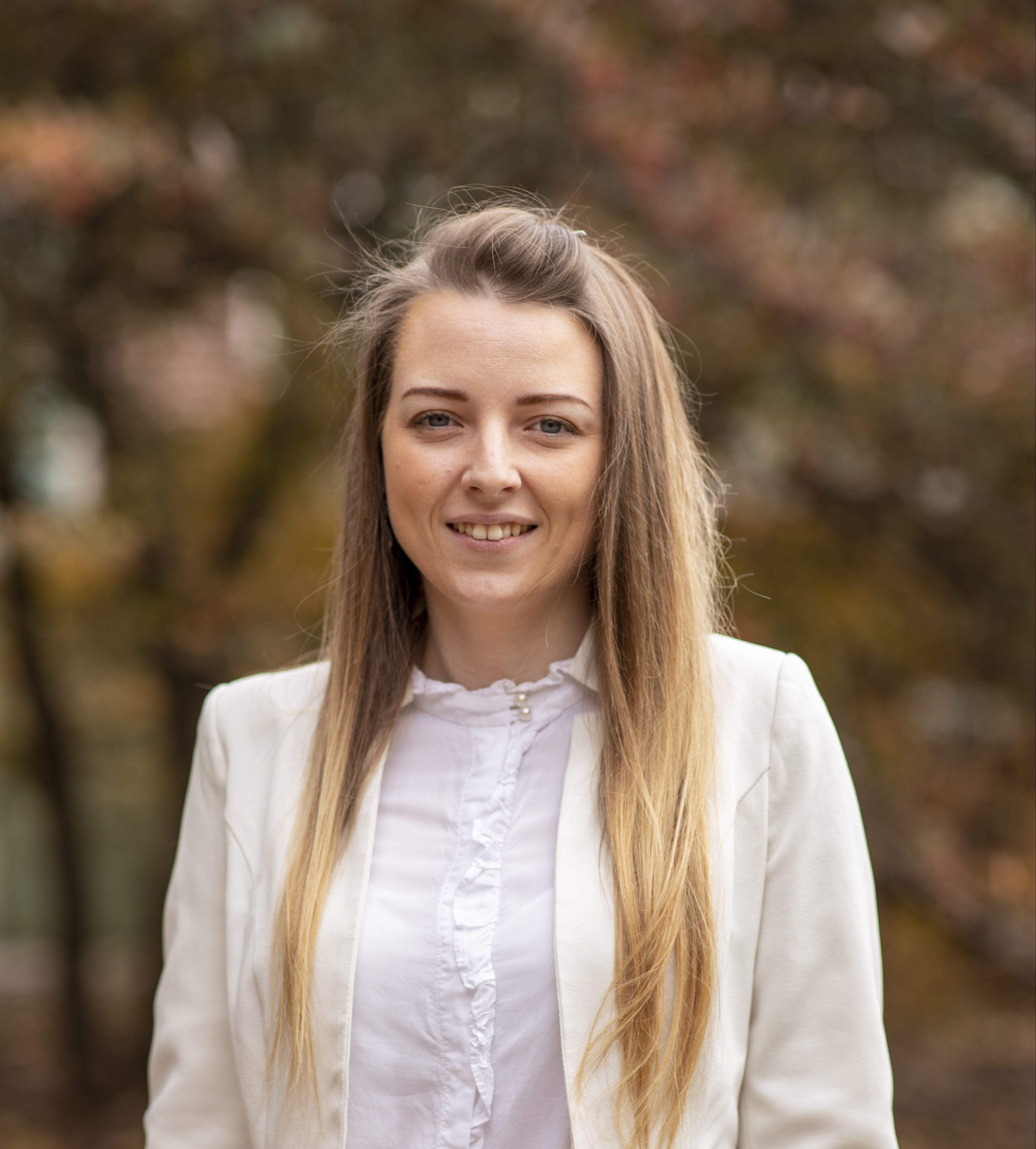
Aleksandra Badaczewska-Dawid, a promising postdoc research associate who hails from the University of Warsaw in Poland, is bringing her research skills and innovative protein-modeling expertise to the Potoyan Lab at Iowa State University, thanks to the Bioscience Innovation Postdoctoral Fellowship.
“It’s a great honor to receive this special fellowship, and I am so very thankful and grateful to be researching in the United States and at Iowa State University,” Badaczewska-Dawid said.
The fellowship was established by the Roy J. Carver Charitable Trust of Muscatine, Iowa to support biomedical research programs on the cusp of developing scientific breakthroughs that could advance human health.
Badaczewska-Dawid’s research will be funded through 2022.
Model Citizen
Badaczewska-Dawid is widely recognized for co-developing a deeply coarse-grained, low-resolution protein model, known as the Single United Residue per Pre-averaged Secondary Structure, or SURPASS model. It has been lauded both for its simplicity and its ability to function as a protein, but with fewer atoms than a standard protein molecule.
The SURPASS model’s reduced size enables more efficient and highly accurate modeling of large-scale proteins.
“It’s an incredible accomplishment in science when someone comes up with a simple model for such a complex object and Aleksandra has achieved just that,” said Davit Potoyan, assistant professor of chemistry and principal investigator in the Potoyan Lab, where Badaczewska-Dawid will work. “We are thrilled to have such a creative and talented scientist join our lab.”
Opportunities in Research
The epicenter of Iowa State’s biological sciences and biomedical research draws from four key departments: The Roy J. Carver Department of Biochemistry, Biophysics and Molecular Biology (BBMB); the Department of Genetics, Development and Cell Biology (GDCB); Ecology, Evolution and Organismal Biology (EEOB); and Chemistry.
Badaczewska-Dawid was selected for this fellowship from a pool of candidates from these disciplines. She became aware of the fellowship after Potoyan read about her coarse-grain protein models in scientific journals.
“Her work immediately caught my attention,” Potoyan said. “I thought to myself, ‘Wow, this is incredible and the simplicity of the model is terrific.’”
Potoyan contacted scientists in Warsaw at the Institute of Biochemistry and Biophysics at the Polish Academy of Sciences, where Badaczewska-Dawid researched proteins.
“After speaking with scientists about her work, I contacted Aleksandra and encouraged her to apply for the fellowship,” Potoyan said.
Badaczewska-Dawid was awarded the fellowship from a highly competitive field of 40 applicants. The honor provides generous financial support as well as the opportunity to collaborate with talented and well-respected Iowa State researchers. In addition, Potoyan is able to add an innovative, top-notch researcher to his successful team of scientists.
The Potoyan Lab
The five members of the Potoyan Lab specialize in building unique theoretical and computational models for understanding the phase transitions in proteins and nucleic acids at multiple scales. Their research examines the flow and dynamics of biochemical reactions as well as intracellular organization.
More specifically, the lab focuses on researching the liquid-liquid phase separation of proteins. Studying these processes can reveal critical insights into how biological processes are organized and regulated inside cells. Abnormalities in these processes can lead to protein accumulations, which is a leading cause of many neurodegenerative diseases.
Badaczewska-Dawid’s current research will leverage newly emerging data on protein-phase separation. She will use the resulting data to develop next-generation, coarse-grained protein models that target phase separating disordered proteins. These models could guide future experiments, help researchers predict new phenomena and lead to the discovery of new protein sequences that could be used in biomedical applications.
Ultimately, the research could lead to ways of controlling or halting degenerative cellular processes that cause protein-related diseases, such as Alzheimer’s and Parkinson’s.
Bright Future
Before her arrival to Iowa State in August, Badaczewska-Dawid spent almost 10 years developing and implementing software that enables the molecular modeling of protein structure and dynamics. She conducted this research in the Laboratory of Theory of Biopolymers in Warsaw while working under the direction of world-renowned scientist Andrzej Kolinski.
Badaczewska-Dawid has coauthored 13 scientific papers and has garnered more than 300 citations in peer-reviewed journals. The European Union, as well as the Ministry of Science and Higher Education in Poland, have funded her research.
She earned her Ph.D. in chemistry from the University of Warsaw in Poland. She’s also a talented graphic artist who develops detailed 3D graphics that visualize her scientific findings. Her scientific art has appeared on the cover of Chemical Reviews and the International Journal of Molecular Sciences.
“With Aleksandra on board, we’re very excited about the future, which is possible because of the generous support from the Roy J. Carver Charitable Trust,” Potoyan said. “We’re excited about putting Iowa State on the map in the area of protein phase separation research and we look to the future with this newly assembled team of international scientists.”
The Roy J. Carver Charitable Trust of Muscatine, Iowa, is one of the largest private philanthropic foundations in the state of Iowa, with assets of more than $325 million and annual grant distributions of nearly $16 million. It was created through the will of Roy J. Carver, a Muscatine industrialist and philanthropist, who died in 1981.
The Iowa State University Department of Chemistry is administered by the College of Liberal Arts and Sciences. It offers bachelor’s through doctoral level degrees in chemistry and also provides graduate degrees in several multidisciplinary majors.